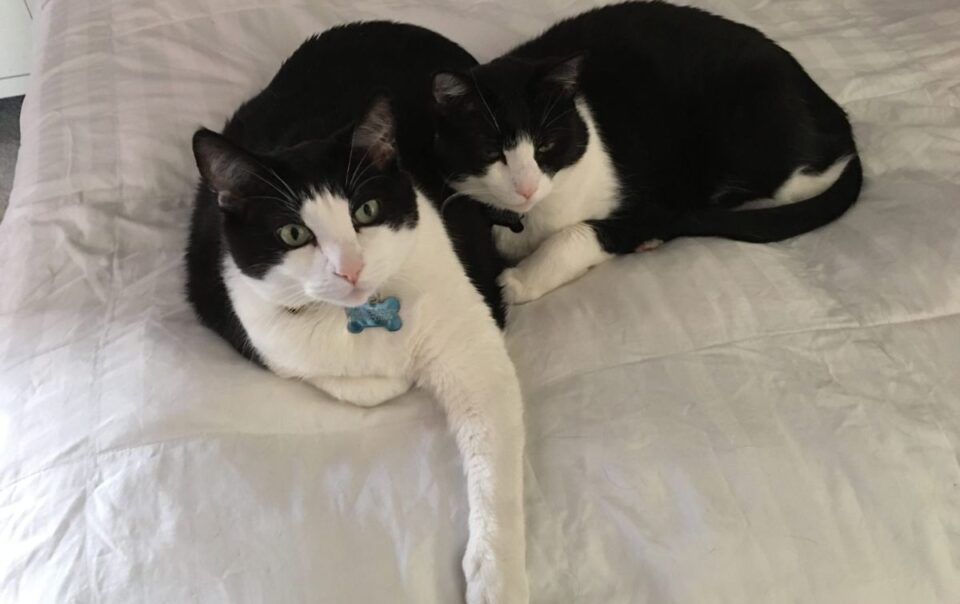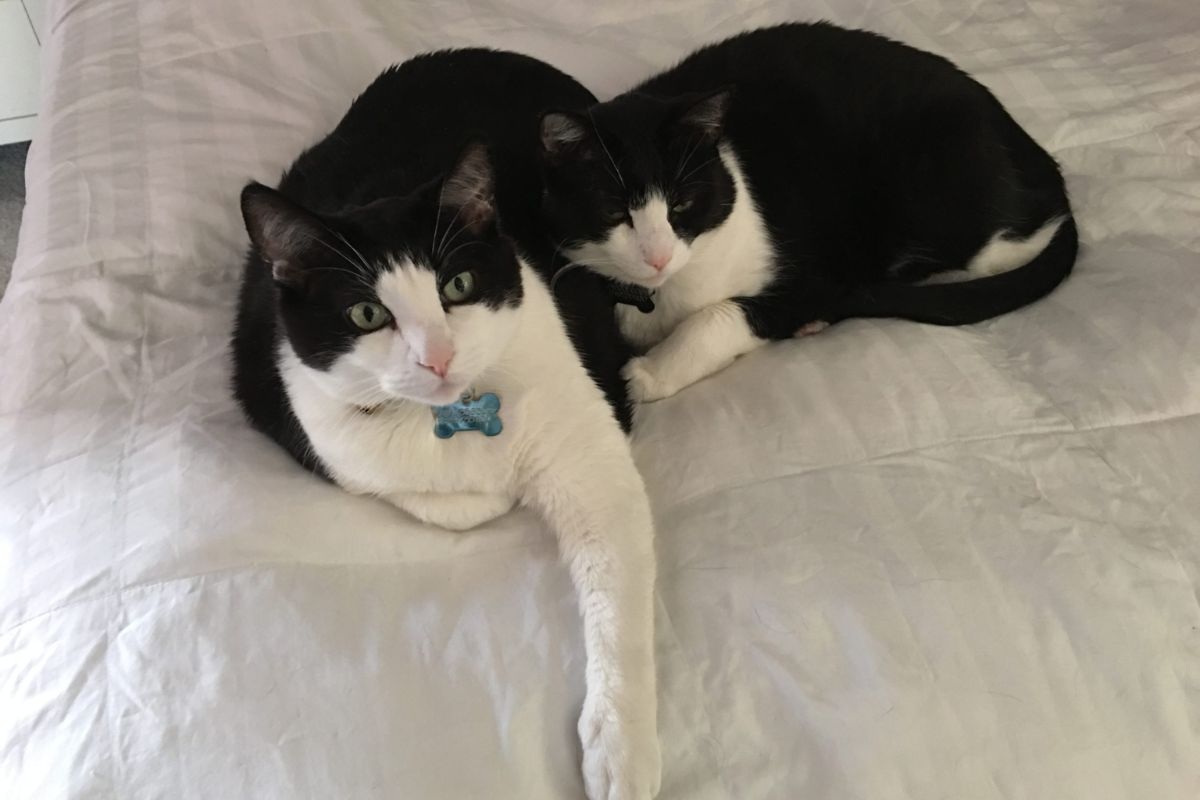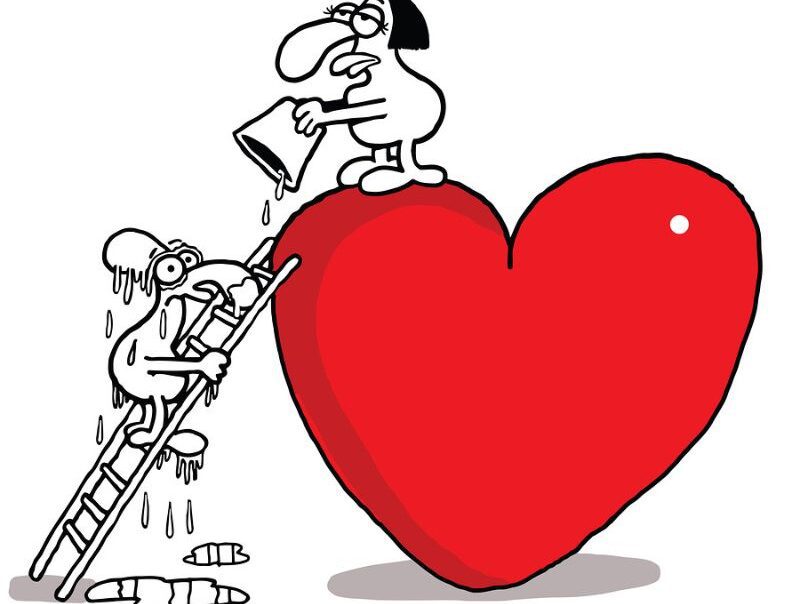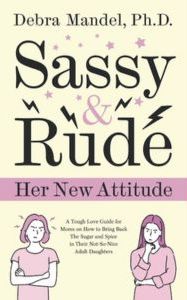Relationships
Is Commitment Phobic Your Middle Name? 7 Tips to Identify & Rectify!
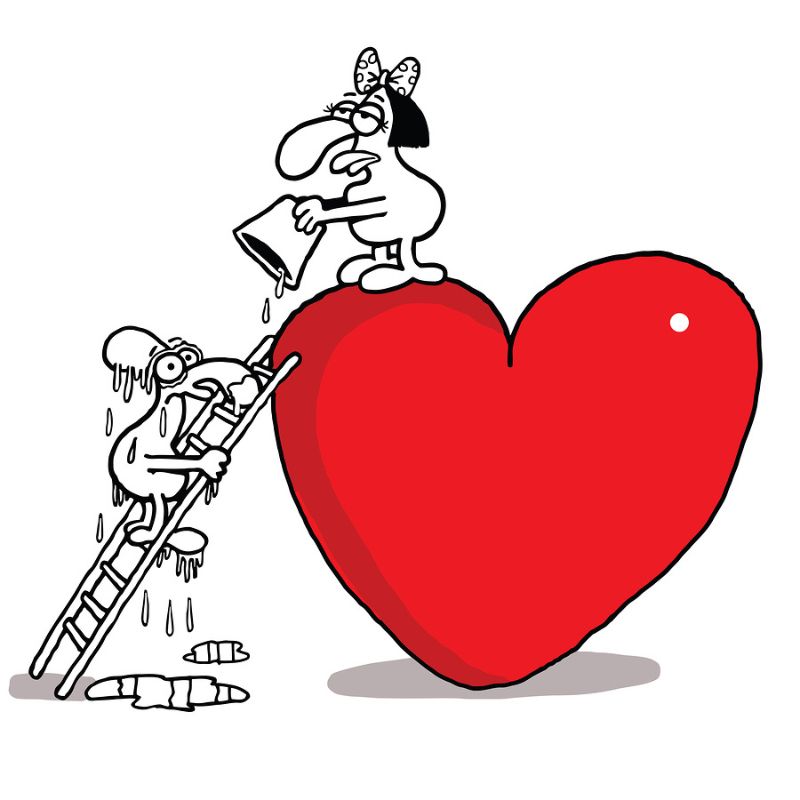
Do you run from commitment like a rabbit feverishly zig-zagging to avoid the bite of a wild dog? Do you believe you desire an intimate relationship but repeatedly find yourself choosing mates who ultimately lead you toward a dead end street? Or do you date people who give you signals, loudly and clearly, that they don’t want a long-term relationship thereby allowing you to camouflage your own skittishness about taking a relationship to the next level? In any case, you may be suffering from commitment phobia or “CP”.
CP may manifest consciously or unconsciously. With the former, you recognize your fear of long-term intimacy and you either avoid relationships altogether or you may casually date but chronically deal with a fear of being smothered or losing your identity/independence. With the latter, you may repeatedly sabotage any chance of a long-lasting serious relationship or pick others who do the same, all the while not recognizing your own discomfort at the thought of commitment.
If one of these scenarios describes you, please don’t be embarrassed or think less of yourself! Millions and millions of people experience anxiety when contemplating taking the step from casual dating to a more intimate level and long-term decision. But it doesn’t help to simply identify yourself as a commitment-phobe. In fact, simply holding onto a label such as CP can keep you stuck in a cycle of avoiding relationships and/or perpetuating chronic starts and stops, never being truly intimate with anyone.
If you want to give up the phobic position and move toward becoming a commitment-seeker (so you can finally be able to enjoy the many benefits of long-lasting love), please embrace the following tips:
- First and foremost, identify the cause. Where do your commitment issues stem from? CP can originate from as far back as in childhood wherein you may have endured a challenging relationship with a parent and/or observed a caregiver in constant turmoil with a spouse. Or, maybe you experienced a painful relationship with someone who broke your heart because of having cheated on you or who wouldn’t commit when you wanted more from the relationship. While identification of cause is not essential, it can be helpful. So start digging.
- Fulfill small commitments daily, to yourself. Many CP’s not only have difficulty committing to others, but also struggle with taking steps toward things they want for themselves. Make a personal goal and take the steps necessary to achieve it. While this may not be the perfect crossover exercise, it can help lay the foundation for building the muscles of follow-through.
- Do a cost-benefit analysis between commitment and non-commitment. In other words, what do you potentially gain by stepping into a relationship with two feet as opposed to just sticking in a toe? Conversely, what do you stand to lose by diving in completely? Many of the things we may fear about making a commitment don’t have to become reality. For instance, if you fear you will lose your identity or ability to “do your own thing,” you’re not going to take kindly to the idea of investing yourself in a relationship. But in actually, relationship and independence don’t have to be mutually exclusive You are in control of your individuality whether you are in a relationship or not. Also, note that until you can finally embrace the true value of commitment, you’re not likely to be motivated to change your stance. So shake things up a bit in your mindset!
- Take inventory of your previous selection process in picking a mate. There is nothing more reinforcing of CP then continually hanging out with people who would never make a good partner for you. While differences can attract us, similarities more commonly keep people together. So figure out what you really want and be discriminatory on the front-end of building a relationship. If you’ve done a good selection process and then find yourself getting antsy, at least you’ll know that your phobia is running the show, not your true desires and logical judgment.
- Be patient with yourself! Go slowly while getting to know a potential long-term mate. Many commitment phobes dive headfirst into a relationship without paying attention to all of the red-flags and then find themselves saying something like “I can never really get what I want.” With this self-sabotage mechanism, the CP becomes defeated and perpetuates CP. Consciously take a step back and allow yourself to experience each step of the relationship-building process.
- Recognize whether your fear is rational or irrational. For instance, it would be wise to steer clear of a suitor who is known for being a cheater. But fearing commitment with someone who has proven to be reliable, trustworthy, considerate, kind-hearted, etc., would be based on negative projections, most likely stemming from a past relationship. So clear out those skeletons and start with a fresh, open slate.
- Take ownership of your own CP issues. It’s so easy to focus on others who have CP and deny it within our self, when present. But the only way to pave the way toward change is to be accountable and take responsibility for our own issues. So turn the mirror back on you and see what changes you need to make!
Also, it’s ok to choose to go through periods of your life solo. Just make sure your choice to do so makes sense andis not just dictated by fear! Most importantly – remember Rome was not built in a day! If you’ve lived a fairly extensive period of your life embroiled in CP – it may take a bit of time and practice to disembroil yourself within its trenches. If these tips don’t help solve the issue, please seek professional relationship counseling so you won’t keep heading down break-up lane!
Feeling Some Post-holiday Funk? Six Tips To Purge The Emotional Junk And Pave The Way To A New Year Free Of Gunk!
 Some of us, myself included, can push ourselves to the limit by constantly trying to please others, giving the perfect gifts, and/or providing holiday cheer to all. While the excitement of all the festivities can exhilarate us to an adrenaline rush akin to jumping out of a plane – we may not always land on two feet. Hence, some will crash, leading to adrenal burnout or, at best, exhaustion!
Some of us, myself included, can push ourselves to the limit by constantly trying to please others, giving the perfect gifts, and/or providing holiday cheer to all. While the excitement of all the festivities can exhilarate us to an adrenaline rush akin to jumping out of a plane – we may not always land on two feet. Hence, some will crash, leading to adrenal burnout or, at best, exhaustion!
If this speaks to you – try the following quick tips:
- Practice the word “NO” for one whole week. I mean it. Unless it’s going to cost you your job or mess with your family duties, try rejecting request that you don’t have to do otherwise your energy will be depleted yet again.
- Make time for exercise! This is not a prescription for diet and weight loss. Putting our bodies in motion makes us feel better. Whether you aim for three 10-minute walks a day or a jog in the park – just do something active.
- Eat your greens and other highly nutritional foods. This probably sounds cliché and something your mother has always advised you of doing – but it really makes sense! More than likely you, like the rest of us, indulged in too much of those yummy treats surrounding us at family and friends’ gatherings. Healthy eating gives your body a chance to repair. Besides, you want to be prepared for extra helpings of your favorite chocolate at Valentine’s Day! J
- Without breaking the budget or putting yourself in debt, treat yourself to something you didn’t get as a present, but desperately wanted. A little bit of healthy self-indulgence can actually make room for more compassion and energy for others.
- Make a date with your closest friend or your lover where you can hang out and relax with no pressure to accomplish anything. Simple bonding with another human being can help to soothe built-up tension. And if you can add in a couple of hugs—all the better!
- Release any negative energy that may have developed from unpleasant family interactions. This can come in the form of meditation, journaling, deep breathing, or anything else that invites in positive flow.
So here’s to a funk and gunk-free, slam dunk New Year. Now there’s a mouthful!
Monday Mood Modifier: Six Tips To Beating The Holiday Blues
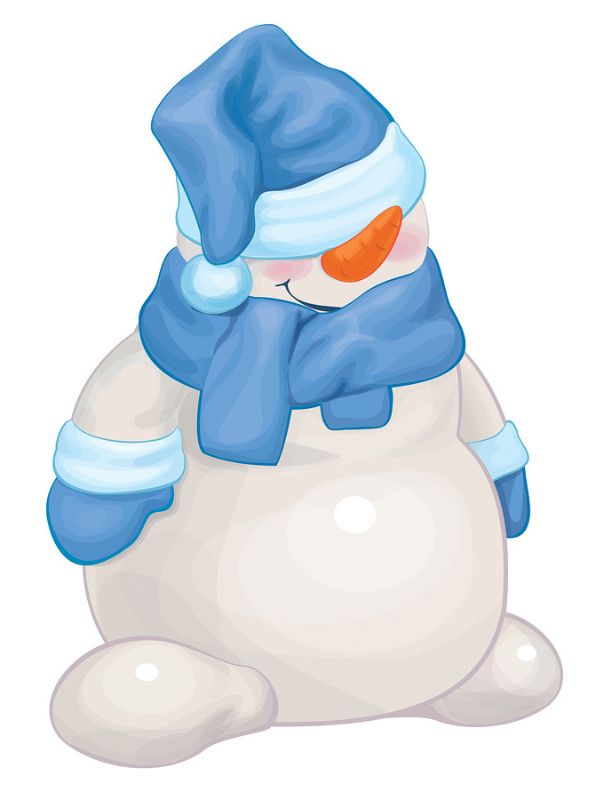 Are you excited about the holidays or do you have a sinking feeling of dread? Or maybe, you have a mixture of both. While for many people the holidays can conjure up positive memories and anticipation of good times –for others, the year-end festivities bring about sadness, stress, and possibly even despair.
Are you excited about the holidays or do you have a sinking feeling of dread? Or maybe, you have a mixture of both. While for many people the holidays can conjure up positive memories and anticipation of good times –for others, the year-end festivities bring about sadness, stress, and possibly even despair.
Some people have always had a “Scrooge-like” attitude toward “tis-the-season-to-be…” whereas others may have once welcomed the winter gatherings but have now developed negative sentiments because of various life events. For instance, up until four years ago, I had always looked forward to year-end celebrations. But then, my father passed smack dab in the middle of the holiday season. While it was clearly time for my pops to let go and say “goodbye”, I now experience bittersweet feelings when this time of year approaches—a mixture of both joy and a sense of loss and sadness.
The holidays can also raise levels of angst because family members don’t get along or because someone doesn’t have family and friends close by. If you’re somebody who cringes at the sight of penguins on wrapping paper or shelves of menorahs begging to be bought, it just might be time to generate or rekindle some holiday spirit. Try the following six mood modifiers:
- If you buy presents for others – remember it’s the thought that counts. Too many people stress over picking the perfect gift. You can’t please everyone all the time. So cut yourself some slack.
- Stay within your budget. In other words, don’t kill the buzz by racking up credit card debt you’ll have to pay down for the entire next year!
- Create your own group of loved ones to share special time with during the season. If you don’t have family around, or you have family but you don’t care to spend time with them, gather up a group of friends. Plus, celebratory gatherings don’t have to land on the specific day of a holiday, just plan something during the season so you have an event to look forward to.
- Take care of your own needs. Many people burn out during the holiday season because they put everybody else’s needs first and forget about their own needs. So be mindful of striking a balance between the two.
- Do activities to relieve stress. Examples: exercising, resting, eating healthfully, walking the dog, etc.
- If you find yourself melancholy, then allow yourself a bit of indulgence in experiencing your feelings to the fullest. But don’t make it a pity party. Instead, give yourself a time limit so that once you’ve had a good cry it’s time to pick yourself up and face the day!
Ok – so maybe you won’t be “dashing through the snow…laughing all the way,” but at least you won’t be saying “bah humbug!”
Monday Mood Modifier: ”Bearly” Getting By? Five Tips To Perk Yourself Up!

Photo by Dr. Debra (taken in Ketchikan, Alaska)
Does your life sometimes feel overwhelmingly difficult? Do you sometimes wake up in a mood that resembles the roar of a grizzly bear? Don’t despair – you can get yourself back on track with just a few simple tasks.
- Splash cold water on your face and tell yourself: “this too shall pass.”
- Make a list of five things you appreciate about your life.
- Take a walk or do some jumping jacks–something to get your energy flowing.
- Do a “burning bowl” – write out all of your worries or negative thoughts on a piece of paper, then take them outside in a safe place and light the paper on fire. Tell the universe to help absorb the unwanted energy.
- Read an inspirational quote. Can’t find one: ask a friend!
Is Preoccupation Your Favorite Location? 7 Tips On How To Stop Being Consumed With Worry And Start Living In The Present Moment!
 Has someone ever asked you: “Hey, what are you thinking about?” or something of the sort, referring to observing you checkout of a conversation? Or do you often find yourself consumed with thoughts about things over which you don’t have any immediate control? Or have you been so entrenched in random thoughts, you’ve totally lost track of time? IF you answered “yes” to any of the above, then preoccupation may have become your favorite location. And you’re probably missing out on enjoyable moments in the present because you simply can’t get your mind off of other unnecessary distractions.
Has someone ever asked you: “Hey, what are you thinking about?” or something of the sort, referring to observing you checkout of a conversation? Or do you often find yourself consumed with thoughts about things over which you don’t have any immediate control? Or have you been so entrenched in random thoughts, you’ve totally lost track of time? IF you answered “yes” to any of the above, then preoccupation may have become your favorite location. And you’re probably missing out on enjoyable moments in the present because you simply can’t get your mind off of other unnecessary distractions.
Of course, I’m teasing when I infer that anyone actually favors or likes being in a state of worry, but I want to get your attention because, while you may not enjoy worrying, you’ve become attached in some way to your fears and concerns. But, just as you can “unfollow” someone on Twitter, or block someone from your Facebook, you can learn to “unfriend” one of the enemies of the mind—i.e., preoccupation!
Clearly, you aren’t the first or only person on the planet to become somewhat obsessive about the details of life. After all, we live in a complicated world with many pressures and stressors. But worrying about things we have no control over – namely, the past or the future, is a recipe for disaster! Plus it breeds, not only emotional discomfort and anxiety (fearing danger when there is none), but a whole lot of other bodily ailments such as: sleepless nights, headaches, muscle tension, and loss of motivation. That’s not to say that planning for the future and/or assessing mistakes made in the past and learning from them doesn’t have great value. But dwelling on something that hasn’t happened yet (and may never happen) or being mired in regret over things that have already passed, will only thwart your ability to enjoy the present moment and deprive you of peace and joy.
So if you’re ready to start occupying your mind more productively, try the following 7 tips:
- Visualize a stop sign in your mind. This should be erected whenever you travel down the road to worry and preoccupation. Symbolic pictures in our mind are powerful in redirecting our thoughts.
- Replace all “what if” questions with “what is,” and “what else?” For instance, if you fear you will be passed over for a promotion and then worry that you’ll never be able to afford your dream vacation (the ‘what if’), you should instead think, “As of now, I’m still in the running (the ‘what is’), but whether I get the promotion or not, I can look at other avenues to earn extra money for travel (the ‘what else’).” This allows for positive outcomes instead of catastrohpies.
- Remind yourself that most of the things we worry about don’t actually happen and when they do, they usually aren’t as bad as we imagined. Of course, this isn’t always the case. Sometimes you will have to deal with catastrophes. But at least save your internal resources for when they actually occur and not waste them on pictures of events that aren’t reality.
- Keep a journal of things that bother you. Sometimes, simply putting our worries down on paper allows them to dissipate more quickly.
- Practice the triangle of getting centered. 1) Sit down in a supportive position with feet firmly planted on the ground; 2) take ten deep breaths exhaling longer than inhaling; 3) scan the immediate environment for danger. Usually you’ll discover that there is no imminent threat to your wellbeing, so you will start to relax.
- Don’t procrastinate! Obviously, this is easier said than done for those who have become accustomed to putting off until tomorrow what should be done today. But, while there are some things we can postpone without serious consequences, life usually runs more smoothly when we tackle what’s within our reach in the present moment.
- Do not over schedule yourself. Even if you are superman/woman, we all have limitations to how much we can get done in any given day, lest we compromise meeting our basic needs. Sure you can forgo sleep for a night or two to accomplish something you’re really excited about, but that would not be a healthy solution long-term.
Now sit back, think happy thoughts, and take life one-step at a time!
Anger
· Creativity
· Depression
· How to Thrive!
· Relationships
· Self-Image
· Self-Love
Treat Your “Inner Child” Like A Superhero!
 No one has had a perfect childhood. Rather, most of us endured some sort of hardship, trauma, adversity or, at the very least, something less than ideal while growing up. As a result, whether we are consciously aware or not, we have an “inner child” who carries forward some sort of negative fallout from those early years into our adulthood, and who often aches for some healing. Ideally the emotional healing we often crave for our wounds should have occurred at the time the wounds were created. But more often than not, no such healing comes from the original source, or at the optimal time. As a result, you may have boxed away feelings, memories, or other painful remnants of the past as a way of disconnecting from your inner child. Yet, this split-off part of you will continue to hold anger, resentment, sadness, hurt, etc. until you address these buried feelings. And, the little beast could wreak havoc somewhere in your adult life.
No one has had a perfect childhood. Rather, most of us endured some sort of hardship, trauma, adversity or, at the very least, something less than ideal while growing up. As a result, whether we are consciously aware or not, we have an “inner child” who carries forward some sort of negative fallout from those early years into our adulthood, and who often aches for some healing. Ideally the emotional healing we often crave for our wounds should have occurred at the time the wounds were created. But more often than not, no such healing comes from the original source, or at the optimal time. As a result, you may have boxed away feelings, memories, or other painful remnants of the past as a way of disconnecting from your inner child. Yet, this split-off part of you will continue to hold anger, resentment, sadness, hurt, etc. until you address these buried feelings. And, the little beast could wreak havoc somewhere in your adult life.
How your inner child inevitability draws attention to her/himself is varied and unpredictable. Regardless, some negative fall-out with regards to interpersonal relationships or self-worth will likely occur. For instance, if you were mistreated as a child by someone significant, such as a parent, you might be drawn toward emotionally abusive relationships in adulthood—not because you are masochistic, but because you are attempting to resolve what wasn’t resolved with your caregiver. Or, you may suffer from an undercurrent of irritability and resentment, causing you to be snippy with others. Yet, this “re-creation” of old wounds with new people won’t repair the past.
The examples above are just a few of the myriad of situations wherein your inner child begs to be acknowledged, yet she doesn’t turn her attention to you because she doesn’t trust that you will be the best source of her healing. Hence, your inner child turns into an inner monster and continually seeks healing in all the wrong places and from all the wrong people, with no satisfaction.
If this speaks to you, it’s time to nip this negative feedback loop in the bud and start treating your inner kid like the superhero she/he is! BTW: this is not a prescription for believing, or acting as if, you are better than others. Rather it’s merely a suggestion for you to embrace all aspects of yourself in order to create a positive relationship with your inner child. Also, you aren’t required to love every aspect of yourself to achieve self-acceptance. In fact, it’s good to regularly evaluate our behavior, and the choices we make, to determine the value of them in our present surroundings. Then we can make changes where we have control. But it’s not okay to shame and berate ourselves or deny our emotional baggage because, without integration and acceptance of ourselves, we cannot thrive!
Don’t know where to begin? Practice the following tips:
- Stop being mean to yourself and practice self-love! State five positive affirmations daily. For example, pick a quality you possess such as “compassion” and say aloud: “I am proud to be able to be compassionate and understanding toward others.” Keep the affirmations simple and realistic. Either repeat the same ones or create new ones each day.
- Look in the mirror every day and say these words aloud to your reflection: “I am here for you and will love you no matter what.” This is a trust building exercise between the “adult” you and the “child” within you.
- Observe a parent who is exceptionally loving toward her infant or toddler. Then practice treating yourself in the same manner. If you don’t know of anyone whom you can emulate, find a character in a movie of TV show, or go to a local park and observe a parent-child interaction.
- Smile at least 10 times per day. Don’t feel happy—then fake it, ‘til you make it. And, if you can muster up a good belly laugh or two, that will get you there quicker!
- Commend your inner child regularly on having made it through difficult times in the past. Take this a step further and state how grateful you are for being able to give yourself the emotional nurturance you deserve.
- Vow to do something playful every day. For instance, play a game you truly enjoyed as a child to remind yourself of fun times or think of a favorite memory and recreate it!
- Make sure you attend to your basic needs on a regular basis. You wouldn’t deprive an infant of food if she were crying out with hunger pains, so why would you skip eating when you’re hungry? This applies for all basic needs such as sleep, affection, nurturance, etc.
Above all, use your imagination! After all, “play” is what children do best—so let your inner child have fun!
When You Feel Funny About Your Friend’s Honey
 Have you ever been in the position of having a close friend whom you perceive to be in a bad relationship, but your friend is blinded by “love?” You want to tell her what you think but you’re pretty certain she won’t listen. Or worse yet, she might falsely believe you are jealous or envious of her and then won’t trust your genuine intentions of helping her steer clear of a future broken-heart. If you’ve ever experienced this scenario, you know how awkward and uncomfortable this situation can be. And, you may be at a loss for what to do and/or question whether you should do anything at all.
Have you ever been in the position of having a close friend whom you perceive to be in a bad relationship, but your friend is blinded by “love?” You want to tell her what you think but you’re pretty certain she won’t listen. Or worse yet, she might falsely believe you are jealous or envious of her and then won’t trust your genuine intentions of helping her steer clear of a future broken-heart. If you’ve ever experienced this scenario, you know how awkward and uncomfortable this situation can be. And, you may be at a loss for what to do and/or question whether you should do anything at all.
I can say for certain that I have been in several not-so-good, and even downright abusive relationships, wherein I knew my friends could see the writing on the wall—but I was too invested, too stubborn, or too whatever to see the red flags in front of me. Yet, because they feared my possible reaction and didn’t want to offend me, many very insightful opinions were never spoken. As a result, I probably stayed longer in these dead-end, painful, relationships than would have been necessary had someone had the “courage” to speak her mind and set me straight. Mind you, this is not anyone else’s fault, and it certainly isn’t anyone’s responsibility to micromanage someone’s chosen love path. But I think many of us go mute for fear of undesirable consequences when a friend may truly need a wake-up call.
If you know someone you believe is headed down, or already on, misery row—you might try the following course or action:
- Check your motives! Be certain you are not operating out of jealousy or envy but rather out of pure concern for your friend’s wellbeing.
- Before diving in with your laundry list of doubts, ask your friend first if he/she is open to feedback concerning your observations/opinions about his/her relationship. Often times, people are more receptive to feedback if they feel it has been solicited rather than completely unsolicited.
- If the answer is “no,” then let it go. Of course, in a situation where your friend is being abused, you probably shouldn’t remain silent. Your statement may be as simple as, “I care about you and I want you to be aware that I am very worried about you and hope you will reconsider the relationship you have chosen.” If your friend blows you off—at least you will have a clear conscience that you have voiced your fear. Hopefully, somewhere down the line, when she figures it out for herself, she will seek your aid and see you as her ally, not her enemy.
- If the answer if “yes”, tread softly-but directly. You might say something like: “I don’t want to interfere with your choices, and this is only my opinion, but…(insert your opinion here).”
- Give a personal example. Many people become more receptive to feedback when they have a sense that the messenger has shared in a similar personal experience. So if you have had a relationship in your life wherein you were blind-sighted to all the warning signs, let your friend know that he is not alone and that you are coming from a place of empathy, not harsh judgment.
- Be prepared for some awkwardness between you and your friend. Most people are pretty sensitive when it comes to matters of the heart. Simultaneously, most of us like the approval from our friends as to the choices we make in our lives. If these two are in contrast, conflict can ensue. But conflict is not always a bad thing and can sometimes drive our friendships to deeper and more meaningful levels.
Probably of most importance is to let your friend know that you respect his/her choices and you will do your best to stand by him/her no matter what!
Vanity Insanity: Stop Obsessing about Beauty Ideals and Be Happy With Who You Are!

photo by Tiffany Luptak – www.tiffanyluptakphotography.com
Let’s face it – there’s no way around the fact that we live in a world obsessed with beauty ideals! Even those among us who claim to not buy into the obsession with physical appearance will sometimes report a gnawing sense of inadequacy, especially when they become trapped in the lair of comparing themselves to images portrayed as the most beautiful people in the world. As if the writers for People magazine ever survey the whole population, let alone have any idea what beauty is. Yet, every year we are inundated with such nonsense.
Of course, there is some survival value to looking our best. We do like attracting mates, and occasionally we may even want to keep one around long-term. J But looking our best is not the same as being beauty obsessed nor is it trying to conform or morph ourselves into someone’s arbitrary determination of what is beautiful and what isn’t. Although cliché—beauty truly lies in the eyes of the beholder. And, because beauty comes in so many different shapes, sizes, and colors, to continually fixate on a narrow vision creates a recipe for self-defeat, insecurities, and low self worth.
- Chuck all of your fashion/beauty magazines. These magazines are aimed at making you feel inadequate so you will buy more products and services. Spend your money on more important things.
- Focus on becoming the best you– not the best outer shell of you. For example, pick a quality you admire in others, such as being a compassionate person, and work on building up this quality in yourself.
- Avoid plastic surgery, Botox, and any other expensive “beauty” enhancing procedures. Instead, try more natural remedies to keep your skin, hair, and nails healthy and vibrant. Too often, people opt for a quick fix instead of putting energy into eating healthfully, exercising, and minimizing stress. These will help create full body care with benefits to physical, mental and emotional wellbeing.
- Keep mirror-time to a minimum. It’s ok to look in the mirror from time to time to do your daily routines. But, never ask the question: Mirror, mirror on the wall—who’s the fairest of them all? Unless, of course, you answer: “me.”
- Embrace the aging process with excitement and grace! Remember youth doesn’t last forever. So instead of fighting the inevitable, enjoy the process and be appreciative every day of everything about yourself.
- Focus your attention on who you are as a person, not what you look like. Build up your inner beauty by increasing self-love, compassion, empathy, generosity, etc.
The obsession with beauty is not an easy problem to solve. Having grown up in a family and subculture heavily focused on the importance of outer appearance, (resulting in a poor self-image and an eating disorder) I understand how hard it can be to ignore, let alone erase, this toxic messaging. But if you practice daily saying “no” to the pressure to chase the arbitrary beauty standards set forth in the media or in your own head, you will begin to feel better. Plus you will ultimately give yourself the biggest gift of all. Your inner light will shine more brightly–the truest beauty of all!
Lose the Shame and Get Back in the Game of Life—8 Tips to Accept Your Mistakes and Move Forward with Positivity!
![]() Do you beat yourself up over minor mistakes? Do you often feel bad about yourself and see others as better than you? Do you take less than you deserve in life because you fear others won’t like you or might see you as greedy? If so, more than likely you suffer from too much shame. Unlike guilt (the experience we have when we’ve done something wrong), shame is a state-of-being wherein we perceive ourselves as unworthy, damaged, and/or underserving of having our needs met.
Do you beat yourself up over minor mistakes? Do you often feel bad about yourself and see others as better than you? Do you take less than you deserve in life because you fear others won’t like you or might see you as greedy? If so, more than likely you suffer from too much shame. Unlike guilt (the experience we have when we’ve done something wrong), shame is a state-of-being wherein we perceive ourselves as unworthy, damaged, and/or underserving of having our needs met.
Trust me. No one understands the consequences of excessive shame better than I do. I lived the first half of my life plagued by it. Shame causes us to treat ourselves badly and prohibits us from living fully and happily in our lives. Sure, we all need a small dose of it, now and again, to keep us humble and able to be civilized. But when shame runs the show, we’re doomed.
Sadly, those who need to experience shame, like serial killers, rapists, child molesters, etc., often don’t even have a conscience at all, let alone the capacity to judge themselves harshly. Whereas “good people,” who occasionally make mistakes or do the wrong thing, often become mired in a state of shame. And even sadder, these same folks often don’t believe they deserve any better.
What does shame get you? More shame and a perpetual existence of making yourself small. Or sometimes people compensate for deep feelings of deprivation due to shame and secretly harbor excessive entitlement! Neither makes for a happy existence.
So if the above describes you—try the following 8 tips to help you unplug from the negativity of shame and move into the realm of positivity!
- Say aloud five kind things about yourself daily. These don’t have to be grandiose as in “I’m the greatest person on earth.” But instead, for instance, if you are a compassionate person, then honor that quality. (BTW- if your shame prevents you from being able to identify any characteristics to admire in yourself, then ask a friend or loved one to give you ideas.)
- Do something for yourself you would not ordinarily do – get a massage, indulge in a one-hour bubble bath or take a drive somewhere you find beautiful. When we act as if we are worthy and meaningful, we usually start to feel more important.
- Practice the mantra – “I can’t please all people all of the time.” Furthermore, try to remember that most of the time it really doesn’t matter what other people think about us! But what we think about our own selves matters the most!
- Make note that good people sometimes do not-so-good things. This fact, however, does not equate with being a bad or unworthy person. Cut yourself some slack. Acknowledge your mistakes and then move on.
- Stop trying to control things you have no control over. There is no better way than to feel ineffective and bad about yourself than by expecting yourself to be able to fix something that isn’t in your power to fix, e.g. like other people places and things. So instead, take control of what is in your power, that is, your own feelings, thoughts, and actions!
- Create a balance between doing things for yourself and doing things for others. It’s wonderful to be generous with our time and energy for the good of others. But when we do so at the expense of meeting our own needs, we will ultimately drown. So make sure you remember yourself in the process. And please note—when you’re doing things for others – it should come from a place of generosity, not from trying to prove you are valuable.
- Don’t let childhood wounds dictate how you feel about yourself in adulthood. If you were treated badly – remember that you have the power to treat yourself well today.
- Avoid negative people or those who provide unconstructive criticism, if you can. It’s not likely to be able to completely eliminate harsh or demanding people from our lives, but when it’s a viable option, take it! For instance, while we may have to deal with a crotchety co-worker for a year or so in order to get the promotion you’re waiting for–there’s no need to continue a friendship with someone who is never there for you in your time of need but who will readily suck all of your time and attention for her benefit!
I’m well aware that these tips may be very hard to implement, particularly for those who have been badly abused or neglected in their lives. But the transformation of shame into healthy self-worth must be done in order to have the freedom to choose a happy existence in adulthood. So if shame is the block to your sense of wellbeing, get help now! If you can’t afford professional counseling, use alternate resources such as support groups, self-help books, or other community offerings. Help is available if you seek it!!
Page 2 of 3
© Copyright Dr. Debra Mandel – All rights reserved.
© Copyright Dr. Debra Mandel – All rights reserved.
Website built by RockfaceIT.com
Website built by RockfaceIT.com

